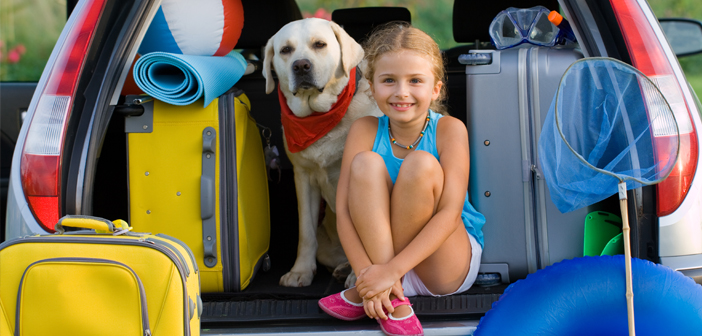By Alfredo Ortiz
Summer is finally upon us, which means vacation season and an injection of money into the hospitality industry.
According to a AAA survey more than one-third of Americans plan to take a family vacation of 50 miles or more away from home in coming months. This means either hitting the road or navigating the skies to reach their summer vacation destinations – spending a small fortune on food, travel and lodging along the way.
According to American Express, the average vacation expense per person in the U.S. is $1,145 – or $4,580 for a family of four. However, a large chunk of that money doesn’t go to businesses in the hospitality industry, it’s sucked up by the government through taxes.
So although many Americans will be participating in this yearly ritual, some will be cutting their trips short, spending less extravagantly or forgoing a vacation altogether because of the costs of taxes. And as the government takes bigger chunks of people’s vacation budgets, its small businesses like those in the hospitality industry that suffer.
For example, before hitting the road in the family mini-van, a pit stop at the gas station is in order, which is where the first of many hidden taxes can be found. For every $40 spent at the pump, $8 goes to the government. More specifically, the federal gas tax comes in at 18.4 cents per gallon, and state gas taxes average out at roughly 27 cents per gallon. And states like New York and Pennsylvania can have gas taxes as high as 50 or even 70 cents per gallon. These pennies can add up quickly – becoming a big drain on a vacation budget.
Airfare is also expensive because of taxes. Flights within the continental U.S. are subject to a 7.5 percent tax, an $8.70 facilities tax, a $4 federal segment tax, and a $5 to $10 security fee to just name some of them. When aggregated, all of the taxes and fees can add hundreds of dollars to a family’s plane ticket costs. In fact, about 25 percent of a plane ticket price goes to the U.S. federal government in taxes.
Once the plane has landed, it doesn’t get any cheaper. Hidden taxes can also be found in rental cars. Between insurance, mandatory theft protection, sales tax and other surcharges, a rental car could end up costing more than double the published base price.
All-in-all, travel-related taxes can inflate travel prices by 50 percent.
And as AAHOA members know well, hotels are not exempt from the tax man either. In the U.S., travelers can pay as much as $50 in taxes for a $200 room, depending on the city.
Vacations are important and have many beneficial effects. They have been proven to reduce stress, improve mental health, foster better relationships and boost overall physical health. But vacations also do something else – they stimulate the hospitality industry, which stimulates job creation. The hospitality and leisure sector has the second-highest unemployment rate in the U.S.
Imagine if vacation-related taxes were to be reduced – or even nonexistent. The money that is no longer handed over to the government stays in people’s pockets – allowing them to better enjoy themselves, extend trips or increase the frequency of vacations. Either way, the excess capital will allow people to spend more of their money on travel, instead of travel taxes – transferring money to the small businesses that make vacations possible.
In turn, those local hotel operators, restaurant owners or small tourism companies can invest back into their businesses – allowing them to create new employment opportunities, offer exciting new travel opportunities or improve the amenities of their establishment.
Let’s hope the government gets the message: Take a vacation so the rest of us can. ■
Alfredo Ortiz is the president and CEO of the Job Creators Network. For more information about Job Creators Network, visit JoinJCN.com.




